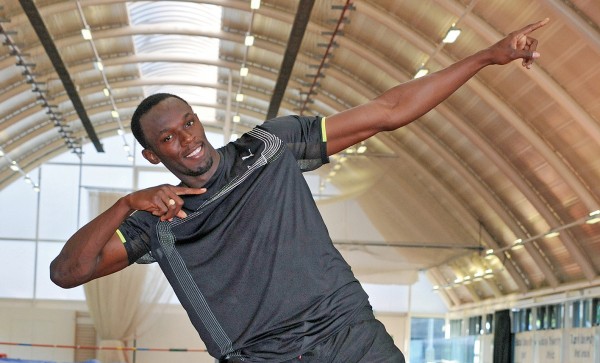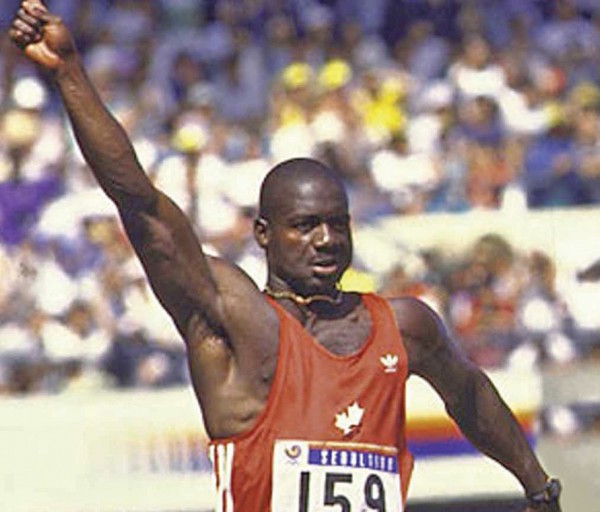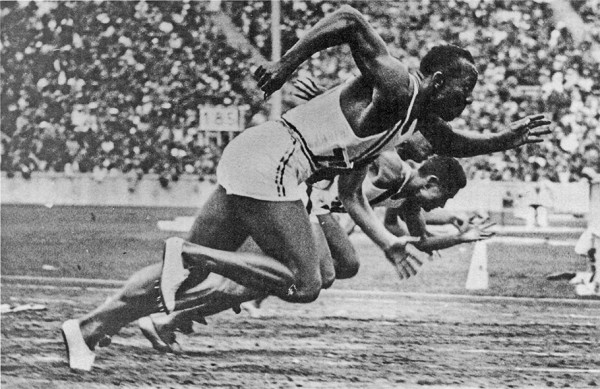
Usain Bolt, the fastest man on earth.
On your marks, get set, bang! As the starter’s gun rang out, 82,000 people rose to their feet. The din was deafening. A billion people sat glued to TV, including yours truly.
This was the final of the Olympic Games 1988 100 metres in Seoul, with the eight fastest men in the world, including Linford Christie and arch rivals Carl Lewis and Ben Johnson.
Carl Lewis, already earning $500,000 from Nike, was tall, handsome, suave and articulate, yet many found him arrogant, aloof and a showboater. Sports Illustrated ran a nasty article, as did Newsweek, when Carl said, “I am better than Jesse Owens and I will be richer than Michael Jackson.” He also lost his deal with Coca Cola. Many other scandal sheets questioned his sexuality; very nasty stuff indeed.
Ben Johnson was the opposite of Lewis. He was very ordinary-looking, shy, and could barely string five words together, but Ben was on his way to mega money. He had just signed a $2.3 million deal with Diadora, and an Olympic win would elevate him to riches beyond his dreams. And win he did, in a new world record time of 9.79 seconds. Canada went mad. Prime Minister Mulroney was overcome, calling Johnson “the greatest Canadian ever.”
After the race, all were tested for drug use. Ben could not give a sample. He was given 10 beers to pass water and was over two hours in the test centre. Meanwhile, Britain’s Daley Thompson had won gold and did his lap of honour wearing a t-shirt, which read “Is the world’s second best athlete gay?” This was a cheap shot, and when American media asked about this, Daley replied, “oh no, in England a gay person is a happy, cheerful person.”
The next day, the Olympic and athletics worlds lay in ruin. Ben Johnson, 100 metre champion, was a cheat. Ben was tested positive for Furazabol, a new drug on the scene. Mayhem ensued. His gold medal went to Carl Lewis and he was banned for life. Ben went from hero to zero in seconds.

Disgraced athlete Ben Johnson.
The Canadian media crucified him. The Ottawa Citizen headlined, “Thanks a lot, you bastard!” Strapped for cash, he actually got a job as fitness coach to Diego Maradona. Ben’s final humiliation came when he did TV commercials for Catch Me clothes. Johnson then did TV ads for energy drink Cheetah Power Surge, where he was told to look at the camera and say, “I cheeta all the time.” Poor Ben; what a fall from glory.
Carl Lewis went on to earn millions, unlike my hero, Jesse Owens, who after winning four gold medals in Berlin, could not get a decent job. Jesse ended up working in launderettes and gas stations.

Jesse Owens winning gold in the 1936 Berlin Olympics.
Owens said when he went to Atlanta, Georgia looking for work, most windows had signs saying “No Niggers or Yanks!” This was a civil war thing. The white folks in Atlanta hated white Yanks and blacks. Charming people. How civilised; hate everybody except ourselves.
Today we are lucky to have Usain Bolt. He seems to be a very nice person; always smiling with a contented and bubbly personality. Usain’s time of 9.58 begs the question, how fast can a man run?
Peter Weyland, of Texas University, is on record as saying a five-second 100 metres is possible. Yours truly thinks this is not going to happen, unless the runner is in a Mercedes Benz 350SL.
Another boffin, John Brenkus, and his team of sports doctors have calculated a time of 8.99. This, they believe, is the fastest a human will ever run, unless “There’s a quantum leap in the species.” I would run with this calculation myself, as it makes sense.
Somewhere in our world today, there is a baby boy fast asleep in his cot. In the Olympic Games of 2036, he will win the 100 metres gold medal and amass glory and riches beyond his dreams. Let’s all hope this baby boy is sleeping in an Irish cot and he will bring honour and glory to Ireland. Yes indeed, just imagine an Irishman could be the fastest man in the world.
By Noel Twamley

